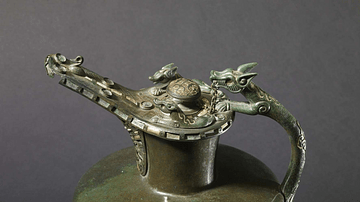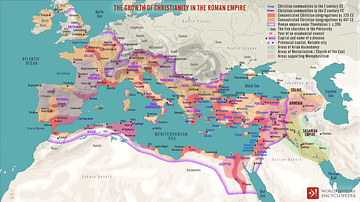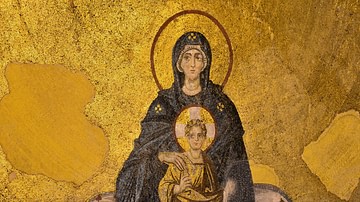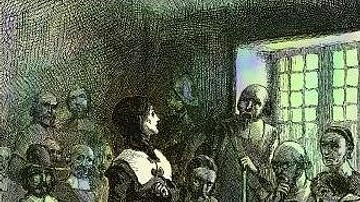Search Articles
Browse Content (p. 75)

Article
Tobacco & Colonial American Economy
The most important cash crop in Colonial America was tobacco, first cultivated by the English at their Jamestown Colony of Virginia in 1610 CE by the merchant John Rolfe (l. 1585-1622 CE). Tobacco grew in the wild prior to this time and was...

Article
Celtic Feasts
Feasts were an important part of ancient Celtic culture which marked important dates in the calendar and community successes. They were, too, an opportunity to display social status and, of course, eat and drink aplenty. Drunkenness and brawling...

Article
The Island of Gla: A Mycenaean Mystery Solved?
The island of Gla, an enigmatic Mycenaean citadel in the north-eastern corner of the Copais basin lies 70 miles north of Athens, in the region of Boeotia. Lake Copais was the largest lake in Greece until the late-19th century CE when it was...

Article
A Brief History of Tobacco in the Americas
The history of tobacco use in the Americas goes back over 1,000 years when natives of the region chewed or smoked the leaves of the plant now known as Nicotiana rustica (primarily in the north) and Nicotiana tabacum (mostly in the south...

Article
Rome's Response to the Spread of Christianity
During the 1st century CE, a sect of Jews in Jerusalem claimed that their teacher, Jesus of Nazareth, was the 'messiah' of Israel. 'Messiah' meant 'anointed one', or someone chosen by the God of Israel to lead when God would intervene in...

Interview
Interview with Simon from Lithodomos VR
In this interview, Ancient History Encyclopedia is talking to Simon Young, the founder of Lithodomos VR, which is a company based in Melbourne, about their new platform Ancient World! Simon (Lithodomos VR): Hi, Kelly. It is great to be here...

Article
Ancient Christianity’s Effect on Society & Gender Roles
Christianity began as a sect of Judaism in Judea in the 1st century CE and spread to the cities of the Eastern Roman Empire and beyond. In these cities, non-Jews, Gentiles, wanted to join the movement, and these Gentile-Christians soon outnumbered...

Article
The Trial of Anne Hutchinson
Anne Hutchinson (l. 1591-1643 CE) was a religious dissident who was brought to trial by John Winthrop (l. c. 1588-1649 CE) and the other magistrates of the Massachusetts Bay Colony in 1637 CE for spreading "erroneous opinions" regarding religious...

Article
Roger Williams' The Bloody Tenent of Persecution
The Bloody Tenent of Persecution (original title, The Bloody Tenenent of Persecution for Cause of Conscience) is a 1644 CE book by the Puritan separatist Roger Williams (l. 1603-1683 CE) which is best known for its arguments supporting the...

Article
Winthrop & Williams: Religious Persecution & Freedom in New England
The Puritans who settled New England claimed they came to the New World for religious freedom but, once settled, made it clear that this freedom was for themselves only and dissent would not be tolerated. Although the most famous example...